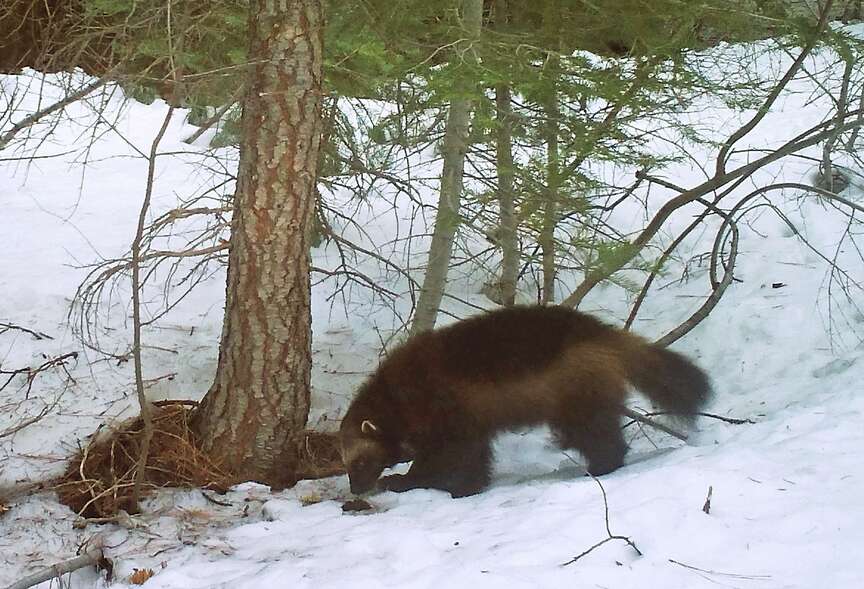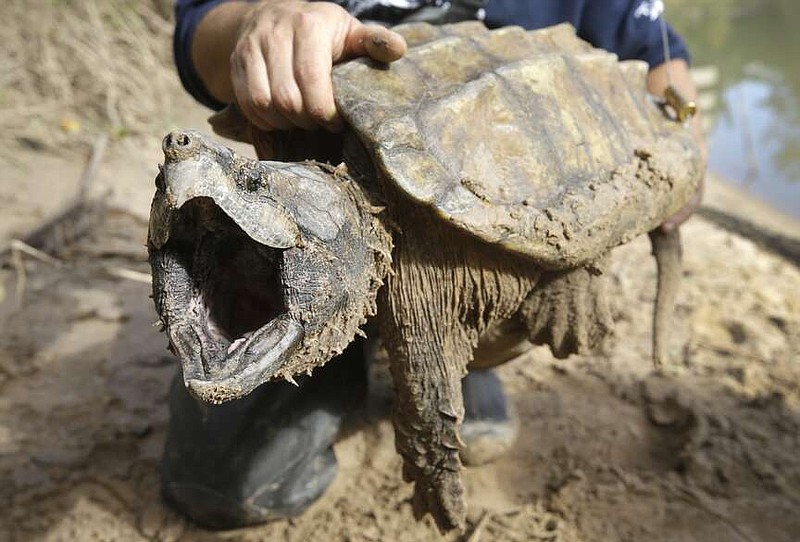BILLINGS, Mont. -- The Biden administration on Thursday restored rules to protect imperiled plants and animals that had been rolled back under former President Donald Trump.
Among the changes, the U.S. Fish and Wildlife Service will reinstate a decades-old regulation that mandates blanket protections for species newly classified as threatened. That means officials won't have to craft time-intensive plans to shield each individual species while protections are pending, as has been done recently with North American wolverines in the Rocky Mountains, alligator snapping turtles in the southeastern U.S. and spotted owls in California.
The restoration of more protective regulations rankled Republicans who said the Endangered Species Act was being wielded too broadly and to the detriment of economic growth. Meanwhile, wildlife advocates were only partially satisfied, saying some potentially harmful changes under Trump were untouched.
The blanket protections rule had been dropped in 2019 as part of a suite of changes to the application of the species law under Trump that were encouraged by industry. Those changes came as extinctions accelerate globally due to habitat loss and other pressures.
Another rule Thursday said officials will not consider economic impacts when deciding if animals and plants need protection. The rules from the wildlife service and National Marine Fisheries Service make it easier to designate areas as critical for a species' survival, even if it is no longer found in those locations.
Species that could benefit from the rules include imperiled fish and freshwater mussels in the Southeast, where the aquatic animals in many cases are absent from portions of their historical range, officials have said.
Fish and Wildlife Service Director Martha Williams said in a statement that the rule changes underscored the agency's commitment to using the best available science to halt population declines as "climate change, degraded and fragmented habitat, invasive species, and wildlife disease" threaten many species.
Details on the rules were obtained by The Associated Press in advance of their public release. Officials said almost a half-million public comments were submitted on the three rules.
Environmentalists expressed frustration that it took years for Democratic President Joe Biden to act on some of the Trump-era rollbacks. Stoking their urgency is the prospect of a new Republican administration following the 2024 election that could yet again ease protections.
Jamie Rappaport Clark, a former Fish and Wildlife Service director and now president at Defenders of Wildlife, characterized Thursday's announcement as a "marginal win" that restores essential protections for wildlife, but leaves in place some of the changes made in 2019 under Trump. The environmental group said the retained provisions would open the door to the destruction of habitat critical for some species to survive.
The rules have gotten strong pushback from Republican lawmakers, who say Biden's Democratic administration has hampered oil, gas and coal development, and favors conservation over development.
"We know the Endangered Species Act is an outdated piece of legislation that has repeatedly failed its primary goal of recovering listed species, yet Biden is now undoing crucial reforms and issuing new regulations that will not benefit listed species," said House Natural Resources Committee Chairman Bruce Westerman, a Republican from Arkansas.
Many energy companies, ranchers, developers and representatives of other industries have long viewed the 1973 Endangered Species Act as an impediment. Under Trump, they successfully lobbied to weaken the law's regulations as part of a broad dismantling of environmental safeguards.
Trump officials also rolled back endangered species rules and protections for the northern spotted owl, gray wolves and other species.
The spotted owl decision was reversed in 2021 after officials said Trump's political appointees used faulty science to justify opening millions of acres of West Coast forest to potential logging. Protections for wolves across most of the U.S. were restored by a federal court in 2021.
The Endangered Species Act is credited with helping save the bald eagle, California condor and scores more animals and plants from extinction since President Richard Nixon signed it into law. It currently protects more than 1,600 species in the United States and its territories.
 FILE - In this Feb. 2021, file photo released by California Department of Fish and Wildlife shows a protected gray wolf (OR-93), seen near Yosemite, Calif., shared by the state's Department of Fish and Wildlife. The Biden on Thursday finalized rules for protecting imperiled species that reverse changes under former President Donald Trump that weakened the Endangered Species Act. (California Department of Fish and Wildlife via AP, File)
FILE - In this Feb. 2021, file photo released by California Department of Fish and Wildlife shows a protected gray wolf (OR-93), seen near Yosemite, Calif., shared by the state's Department of Fish and Wildlife. The Biden on Thursday finalized rules for protecting imperiled species that reverse changes under former President Donald Trump that weakened the Endangered Species Act. (California Department of Fish and Wildlife via AP, File) FILE - In this May 8, 2003, file photo, a Northern Spotted Owl sits on a tree in the Deschutes National Forest near Camp Sherman, Ore. The Biden administration on Thursday restored rules to protect imperiled plants and animals that had been rolled back under former President Donald Trump.(AP Photo/Don Ryan, File)
FILE - In this May 8, 2003, file photo, a Northern Spotted Owl sits on a tree in the Deschutes National Forest near Camp Sherman, Ore. The Biden administration on Thursday restored rules to protect imperiled plants and animals that had been rolled back under former President Donald Trump.(AP Photo/Don Ryan, File) FILE - This photo provided by the California Department of Fish and Wildlife, from a remote camera set by biologist Chris Stermer, shows a wolverine on Feb. 27, 2016, in the Tahoe National Forest near Truckee, Calif., a rare sighting of the predator in the state. Wolverines recently received federal protection as a threatened species. The Biden administration on Thursday, March 28, 2024, restored a rule that gives blanket protections to threatened species. (Chris Stermer/California Department of Fish and Wildlife via AP, File)
FILE - This photo provided by the California Department of Fish and Wildlife, from a remote camera set by biologist Chris Stermer, shows a wolverine on Feb. 27, 2016, in the Tahoe National Forest near Truckee, Calif., a rare sighting of the predator in the state. Wolverines recently received federal protection as a threatened species. The Biden administration on Thursday, March 28, 2024, restored a rule that gives blanket protections to threatened species. (Chris Stermer/California Department of Fish and Wildlife via AP, File)